After working abroad for many years, in 2013 Karen O’Reilly and her husband Brian Harrington decided to return to Ireland with their young children Alannah and Dylan.
They settled in Clonakilty, Co Cork, in part because of its good schools and proximity to Karen’s mother. This was important because Brian’s job in the oil and gas industry saw him working outside the country for extended periods. At home with the children Karen set out to find family friendly work.

Minister of Foreign Affairs and Defence Simon Coveney launching Employflex with Karen O'Reilly. \ Darragh Kane
“I wanted to be there for our children as they grew up. So I was looking for part-time or remote work but I could find nothing. Nothing to match my education and experience which was part time, or four days a week, or remote or avoided a long commute. I couldn’t believe I was the only one looking for flexible working arrangements.”
And Karen was right. Her dilemma prompted her to study the 2015 Census where she found that over 400,000 women stated their role as “home duties”. This compared to just 9,000 men in the same category. But what really surprised her was that half these women had a degree qualification or higher.
Failing to find flexibility
This was a light-bulb moment for Karen. Surely many of these women were like her – wanting to be with their children while trying to find flexible employment outside the usual 9-5pm.
“It’s not a matter of either full time or part time. There are so many options for employers and their staff. Flexible employment covers working remotely, flexi time or part time, job sharing, annualised hours, compressed hours or results only work environment where people are paid by project.”

Karen O'Reilly of Employmum and Employflex winning at the Family Friendly Ireland Awards. \ Darragh Kane
Suddenly Karen’s light-bulb moment made sense – the lack of flexible working arrangements meant that women, and highly qualified women at that were putting their families ahead of their careers. And so EmployMum was born.
An avalanche
With no funding or budget, Karen built her website and sought to register women who were interested in working outside the usual hours. “As soon as it went live I had an avalanche of calls and quickly established a date base of highly qualified women. Many of them had stepped out of careers as they found it impossible to balance home and work life with employers unwilling to offer any flexibility. In reality they were being forced out of work.”
Karen is adamant that companies which offer flexible work arrangements will get it back with very loyal employees. “A simple thing like allowing an employee do the school run before work would create such good will and remove a whole level of stress from parents,” she says.
In 2015 Karen completed a ‘Start your own business’ course and was supported with mentoring by the Local Enterprise Office. In 2018 she followed up with the Going for Growth programme run by Paula Fitzsimons.
Age group appeals
Karen now has a database of 5,000 candidates, 95% of whom have a third-level degree or higher. She has candidates who are interested in working in accounting and finance, marketing, administration, IT and law. The age group is generally between 30-55.
“This age group is attractive to employers who are unhappy about taking on young graduates who after two years training head off on their travels around the world. Employing a parent who is not about to uproot their family, is a safer bet and companies are prepared to invest in them.”
Karen was equally successful in attracting potential employers partly thanks to a skills shortage but she has yet to assess how COVID-19 will impact on employment. However, she is certain that COVID-19 proved the old arguments against remote and flexible working arrangements are now irrelevant.
“We proved it could be done across many sectors. Yes broadband needs to be better but employees have the technology and video conferencing software proved you don’t need to be office bound to get work done.”
However, she warns that working remotely in a COVID-19 pandemic while having to care for young children is not a normal work environment and shouldn’t be treated as such.
As to the future Karen believes the world of work will look very different. “Employers will have to embrace flexible working. The models are there and we know they lead to better productivity and higher staff retention. It’s a win-win all round.”
For more contact Karen or any of her team of four at info@employflex.ie or call 087-972 2498
Karen O’Reilly was born in Limerick and due to her father’s entrepreneurial streak she had lived in 18 different locations by the time she turned 18. Secondary school was with the Salesian nuns in Limerick and she credits them with giving her a solid grounding when growing up.
A business degree from Waterford Institute of Technology followed and Karen completed her ACCA accountancy exams while doing her articles with BDO Simpson Xavier. She then headed for Australia followed by stints in Luxemburg and the UK where she worked in finance and accountancy.
By her late 20s Karen had changed tack and was living the good live selling property with her sister in the south of France. She was to spend 12 years there and during this time she married her husband Brian Harrington and had their two children – Alannah and Dylan.
“We were based in Perpignan and it was idyllic. It was easy on family life and we were very happy there, but as the children got older I wanted them to be Irish and receive an Irish education and values. So we returned to Ireland in 2013 and went to live in Clonakilty. My mum had moved there and on visits home we fell in love with the place. We were blown away by the schools and the availability of a good rounded education for our children was a big pull home for us.”
With most companies operating a recruitment freeze Karen now offers training to businesses which may not have had a remote team before. She is also running free webinars via Zoom for job seekers at 3pm every Wednesday. Topics include preparing a killer CV, making the most of LinkedIn online interviews and getting the best on social media.
Last year she branched out to create ‘Employ Flex’ which is aimed at both men and women. “About 30 % of our placements are men and not every woman is a mum so our messaging needed to be clearer.”
Her team has expanded also and she now has on board award winning Helen Walshe in Cork and Fergus Chawke in Limerick as valued flexible work specialists.
‘They sold me
on my skills
and abilities’
Noella Carroll is commercial finance manager with Ballymaloe Foods. Prior to talking on the job she had been working full time in the commercial sector. Her work included a lot of travel.
“I wanted to take a step back from being full time and I found EmployMum really understood my needs. I now work three to four days a week depending on the needs of the business. My hours are flexible in that some days I finish early and others late. Both Ballymaloe Foods and I are flexible when it comes to this,” says Noella.
It was important to Noella that her need for flexible working hours would not mean a step back when it came to her skills and abilities. “I was looking for more flexible hours in a role that recognised my skills and experience. Karen understood this and sold me on my skills, and not my wish for flexible hours. She worked hard to find the right fit for me and she succeeded.”
Lack of broadband can inhibit job prospects.
‘People are
entitled to first-class broadband’
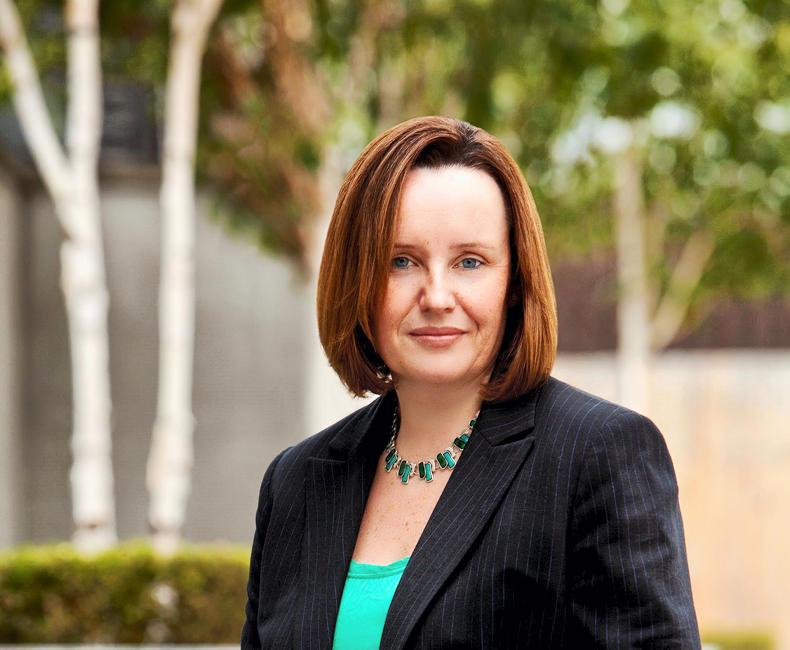
Sonia McEntee of Sonia McEntee solicitors says remote working and flexible hours with staff works for her
Sonia McEntee owner of Sonia McEntee solicitors was looking to employ a personal assistant who would work with her for three hours a day, five days a week. Based in Cavan she had experience working remotely and had no worries about working in this way with staff. In fact it enabled her to cast her net wider when looking for the right candidate.
“I made contact with Karen and she lined up five excellent candidates from right across the country. They were at different stages of their careers and I succeeded in employing someone who was working in one of the top five legal practices in the country.”
Sonia says the COVID-19 experience has proved the importance of good computer services and broadband. “People are entitled to first class broadband. Not having it can seriously impact on a person’s job prospects. It’s as simple as that.”
After working abroad for many years, in 2013 Karen O’Reilly and her husband Brian Harrington decided to return to Ireland with their young children Alannah and Dylan.
They settled in Clonakilty, Co Cork, in part because of its good schools and proximity to Karen’s mother. This was important because Brian’s job in the oil and gas industry saw him working outside the country for extended periods. At home with the children Karen set out to find family friendly work.

Minister of Foreign Affairs and Defence Simon Coveney launching Employflex with Karen O'Reilly. \ Darragh Kane
“I wanted to be there for our children as they grew up. So I was looking for part-time or remote work but I could find nothing. Nothing to match my education and experience which was part time, or four days a week, or remote or avoided a long commute. I couldn’t believe I was the only one looking for flexible working arrangements.”
And Karen was right. Her dilemma prompted her to study the 2015 Census where she found that over 400,000 women stated their role as “home duties”. This compared to just 9,000 men in the same category. But what really surprised her was that half these women had a degree qualification or higher.
Failing to find flexibility
This was a light-bulb moment for Karen. Surely many of these women were like her – wanting to be with their children while trying to find flexible employment outside the usual 9-5pm.
“It’s not a matter of either full time or part time. There are so many options for employers and their staff. Flexible employment covers working remotely, flexi time or part time, job sharing, annualised hours, compressed hours or results only work environment where people are paid by project.”

Karen O'Reilly of Employmum and Employflex winning at the Family Friendly Ireland Awards. \ Darragh Kane
Suddenly Karen’s light-bulb moment made sense – the lack of flexible working arrangements meant that women, and highly qualified women at that were putting their families ahead of their careers. And so EmployMum was born.
An avalanche
With no funding or budget, Karen built her website and sought to register women who were interested in working outside the usual hours. “As soon as it went live I had an avalanche of calls and quickly established a date base of highly qualified women. Many of them had stepped out of careers as they found it impossible to balance home and work life with employers unwilling to offer any flexibility. In reality they were being forced out of work.”
Karen is adamant that companies which offer flexible work arrangements will get it back with very loyal employees. “A simple thing like allowing an employee do the school run before work would create such good will and remove a whole level of stress from parents,” she says.
In 2015 Karen completed a ‘Start your own business’ course and was supported with mentoring by the Local Enterprise Office. In 2018 she followed up with the Going for Growth programme run by Paula Fitzsimons.
Age group appeals
Karen now has a database of 5,000 candidates, 95% of whom have a third-level degree or higher. She has candidates who are interested in working in accounting and finance, marketing, administration, IT and law. The age group is generally between 30-55.
“This age group is attractive to employers who are unhappy about taking on young graduates who after two years training head off on their travels around the world. Employing a parent who is not about to uproot their family, is a safer bet and companies are prepared to invest in them.”
Karen was equally successful in attracting potential employers partly thanks to a skills shortage but she has yet to assess how COVID-19 will impact on employment. However, she is certain that COVID-19 proved the old arguments against remote and flexible working arrangements are now irrelevant.
“We proved it could be done across many sectors. Yes broadband needs to be better but employees have the technology and video conferencing software proved you don’t need to be office bound to get work done.”
However, she warns that working remotely in a COVID-19 pandemic while having to care for young children is not a normal work environment and shouldn’t be treated as such.
As to the future Karen believes the world of work will look very different. “Employers will have to embrace flexible working. The models are there and we know they lead to better productivity and higher staff retention. It’s a win-win all round.”
For more contact Karen or any of her team of four at info@employflex.ie or call 087-972 2498
Karen O’Reilly was born in Limerick and due to her father’s entrepreneurial streak she had lived in 18 different locations by the time she turned 18. Secondary school was with the Salesian nuns in Limerick and she credits them with giving her a solid grounding when growing up.
A business degree from Waterford Institute of Technology followed and Karen completed her ACCA accountancy exams while doing her articles with BDO Simpson Xavier. She then headed for Australia followed by stints in Luxemburg and the UK where she worked in finance and accountancy.
By her late 20s Karen had changed tack and was living the good live selling property with her sister in the south of France. She was to spend 12 years there and during this time she married her husband Brian Harrington and had their two children – Alannah and Dylan.
“We were based in Perpignan and it was idyllic. It was easy on family life and we were very happy there, but as the children got older I wanted them to be Irish and receive an Irish education and values. So we returned to Ireland in 2013 and went to live in Clonakilty. My mum had moved there and on visits home we fell in love with the place. We were blown away by the schools and the availability of a good rounded education for our children was a big pull home for us.”
With most companies operating a recruitment freeze Karen now offers training to businesses which may not have had a remote team before. She is also running free webinars via Zoom for job seekers at 3pm every Wednesday. Topics include preparing a killer CV, making the most of LinkedIn online interviews and getting the best on social media.
Last year she branched out to create ‘Employ Flex’ which is aimed at both men and women. “About 30 % of our placements are men and not every woman is a mum so our messaging needed to be clearer.”
Her team has expanded also and she now has on board award winning Helen Walshe in Cork and Fergus Chawke in Limerick as valued flexible work specialists.
‘They sold me
on my skills
and abilities’
Noella Carroll is commercial finance manager with Ballymaloe Foods. Prior to talking on the job she had been working full time in the commercial sector. Her work included a lot of travel.
“I wanted to take a step back from being full time and I found EmployMum really understood my needs. I now work three to four days a week depending on the needs of the business. My hours are flexible in that some days I finish early and others late. Both Ballymaloe Foods and I are flexible when it comes to this,” says Noella.
It was important to Noella that her need for flexible working hours would not mean a step back when it came to her skills and abilities. “I was looking for more flexible hours in a role that recognised my skills and experience. Karen understood this and sold me on my skills, and not my wish for flexible hours. She worked hard to find the right fit for me and she succeeded.”
Lack of broadband can inhibit job prospects.
‘People are
entitled to first-class broadband’

Sonia McEntee of Sonia McEntee solicitors says remote working and flexible hours with staff works for her
Sonia McEntee owner of Sonia McEntee solicitors was looking to employ a personal assistant who would work with her for three hours a day, five days a week. Based in Cavan she had experience working remotely and had no worries about working in this way with staff. In fact it enabled her to cast her net wider when looking for the right candidate.
“I made contact with Karen and she lined up five excellent candidates from right across the country. They were at different stages of their careers and I succeeded in employing someone who was working in one of the top five legal practices in the country.”
Sonia says the COVID-19 experience has proved the importance of good computer services and broadband. “People are entitled to first class broadband. Not having it can seriously impact on a person’s job prospects. It’s as simple as that.”







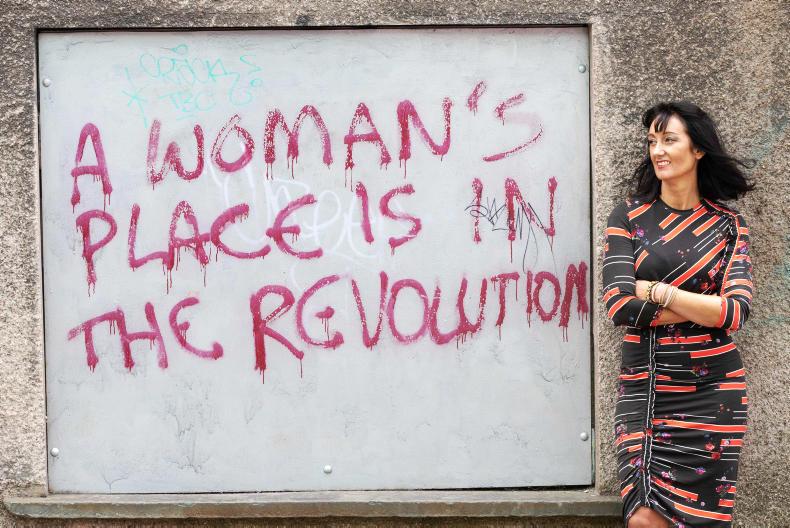
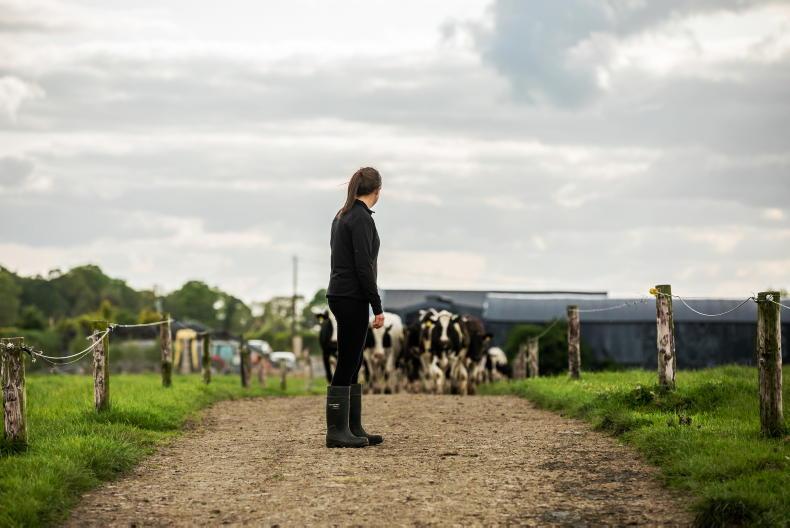

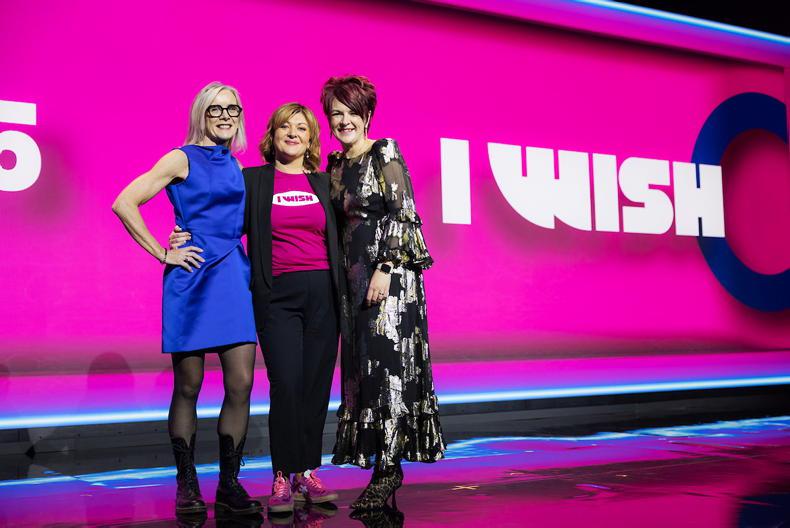
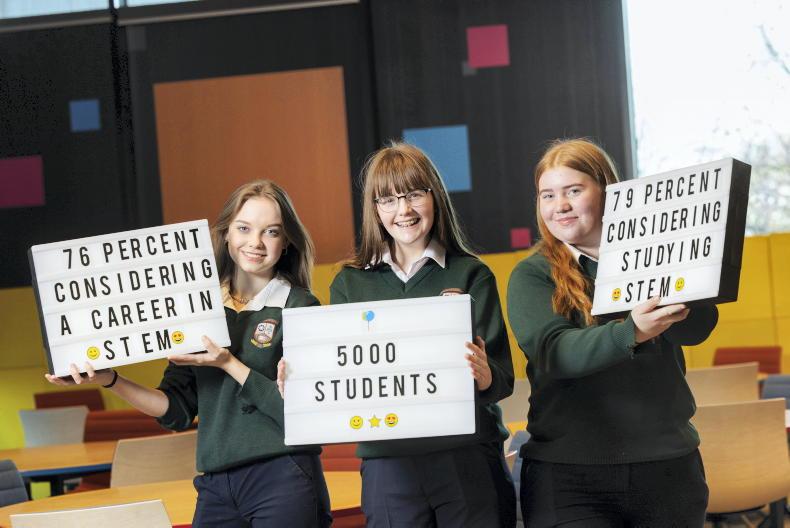
SHARING OPTIONS